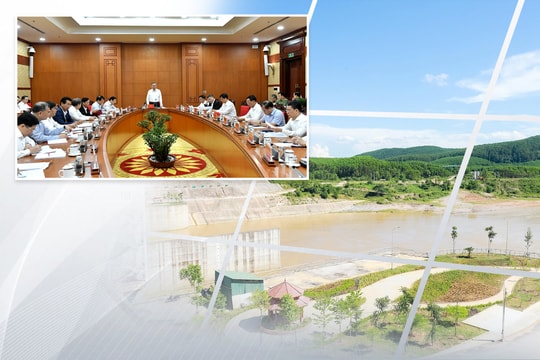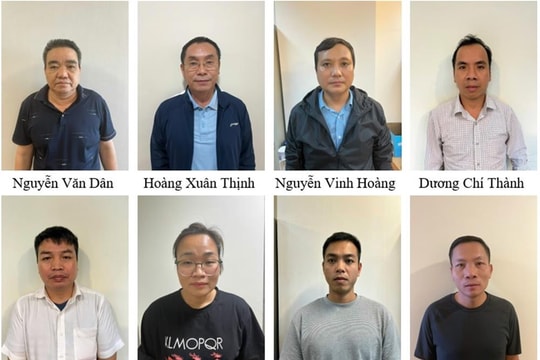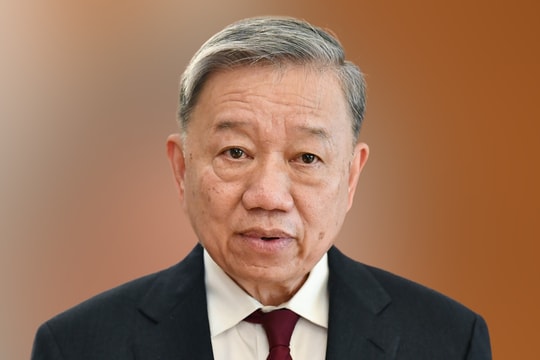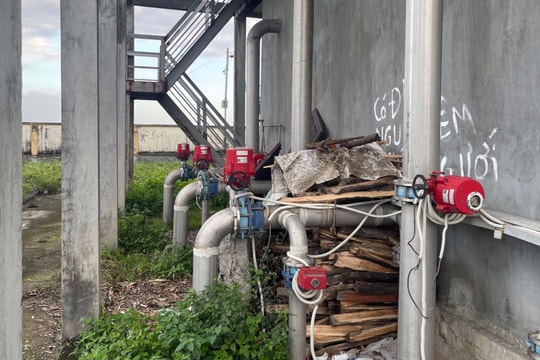Anti-waste, practice thrift according to Ho Chi Minh's thought
Fighting waste and practicing thrift is a very important task, no less important than the fight against corruption, bureaucracy, and negativity.
Wastefulness, corruption and bureaucracy all directly threaten the safety of the nation and the survival of the regime. Therefore, continuing to promote the study of Ho Chi Minh's thoughts on preventing and combating waste, practicing thrift and persistently applying them creatively in practice is of great importance to the revolutionary cause in our country today.
President Ho Chi Minh identified, criticized and fought against waste.
President Ho Chi Minh is the founder, leader and trainer of our Party. His ideology, morality and style are the ideological foundation and compass for all actions of the Party. Right from the first days of the successful revolution, President Ho Chi Minh regularly educated cadres and Party members to improve revolutionary ethics, practice thrift, fight corruption, waste, and bureaucracy...
InLetter to the People's Committees of regions, provinces, districts and villages(October 17, 1945),Letter to Northern comrades(March 1947),Letter to Central comrades(1947) and in works such asChange the way you work(October 1947),Diligence, thrift, integrity, and honesty(June 1949),Revolutionary ethics(December 1958),Promote revolutionary ethics, eliminate individualism(February 1969),Testament(May 1969... He spoke many times about cultivating revolutionary ethics, practicing thrift, diligence, honesty, impartiality, and criticized embezzlement, corruption, bureaucracy, and waste.
Anti-waste and thrift practice are among the basic contents in the system of revolutionary ethical viewpoints of President Ho Chi Minh.
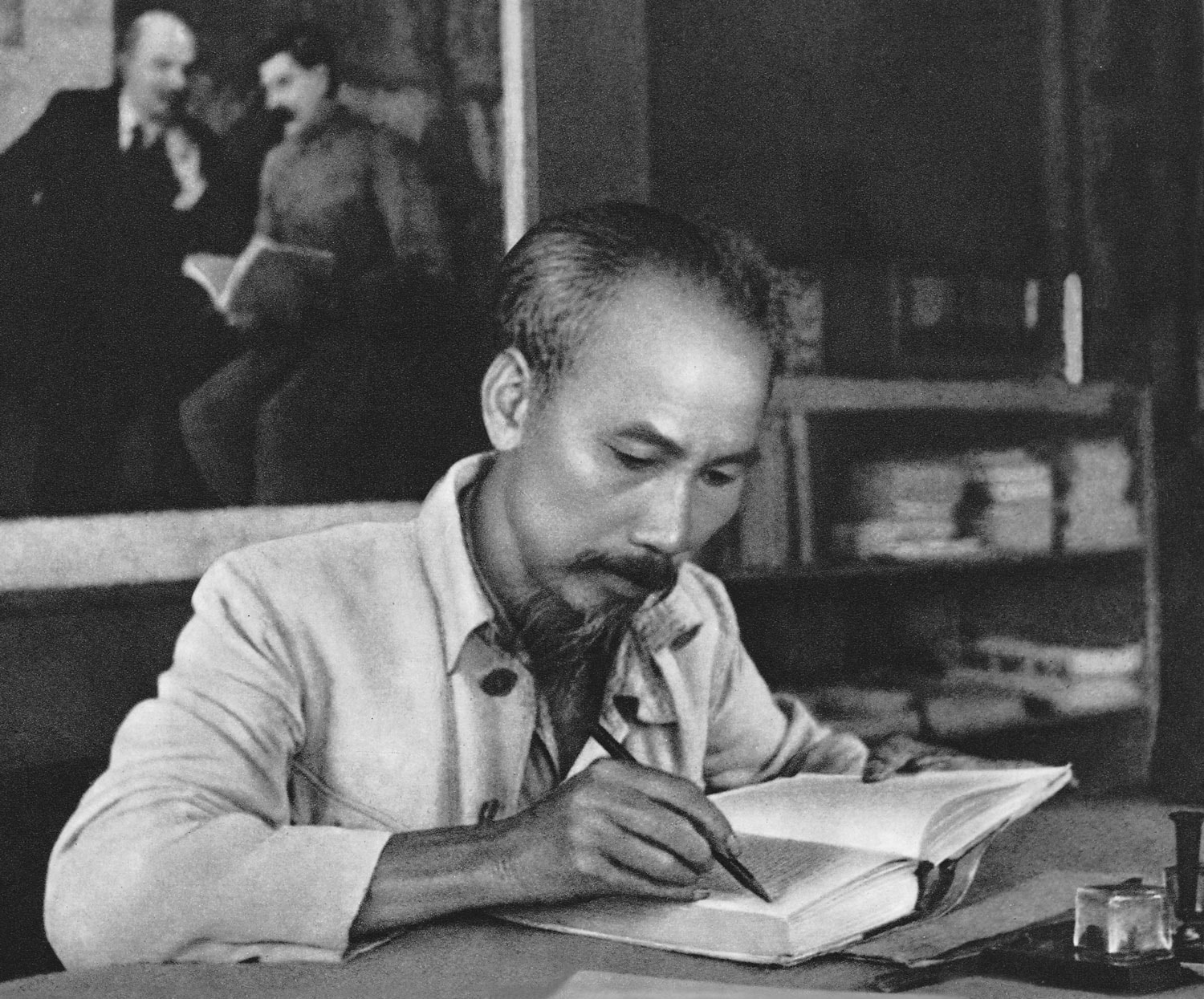
Wastefulness, as pointed out by Him, is indiscriminate consumption, wasting labor, time, money, and material wealth of the people and the country.
According to Him, wasting labor is doing something that few people can do, but still using many people; due to careless calculation, mobilizing hundreds of people to the construction site, but there is no work or there are too many people, too little work; improper personnel arrangement, so there are too many managers, too few direct producers.
Wasting time is something that can be done in a day or a session but drags on for several days; wasting money, wasting material assets of the State, agencies, and units; personally "spending lavishly, partying, shopping, spending money like water", using supplies and materials wastefully.
For example, banks do not use money skillfully, causing money to stagnate, which is not beneficial for increasing production; economic agencies make impractical plans, which are not suitable to the situation, causing the Government to lose capital; they do something that is not legal, and after finishing it, they have to destroy it and do it again,... Therefore, we see that waste is unreasonable spending, waste is the disease of "showing off", causing unnecessary expenses.
Waste can sometimes cause more material harm than embezzlement, therefore, President Ho Chi Minh pointed out: "Although waste does not take public money for oneself, the results are still very harmful to the people and the Government. Sometimes it is more harmful than embezzlement."(1).
Therefore, he called for a resolute fight against waste in state agencies and in the daily life of each person; it is necessary to fight against wasteful consumption of people's and state's assets. Fighting waste is closely related to thrift and according to President Ho Chi Minh, to contribute to the revolutionary cause, it is necessary to save labor, save time, save money...; accordingly, everyone and every agency must save.
People consider saving as a law of progress of a country, an operating method of an economic regime; not only poor countries practice saving, but even rich countries need to save. In reality, if you save, you must not waste, and waste means not saving.
According to President Ho Chi Minh, to contribute to the revolutionary cause, it is necessary to save labor, save time, save money...; accordingly, everyone and every agency must save.
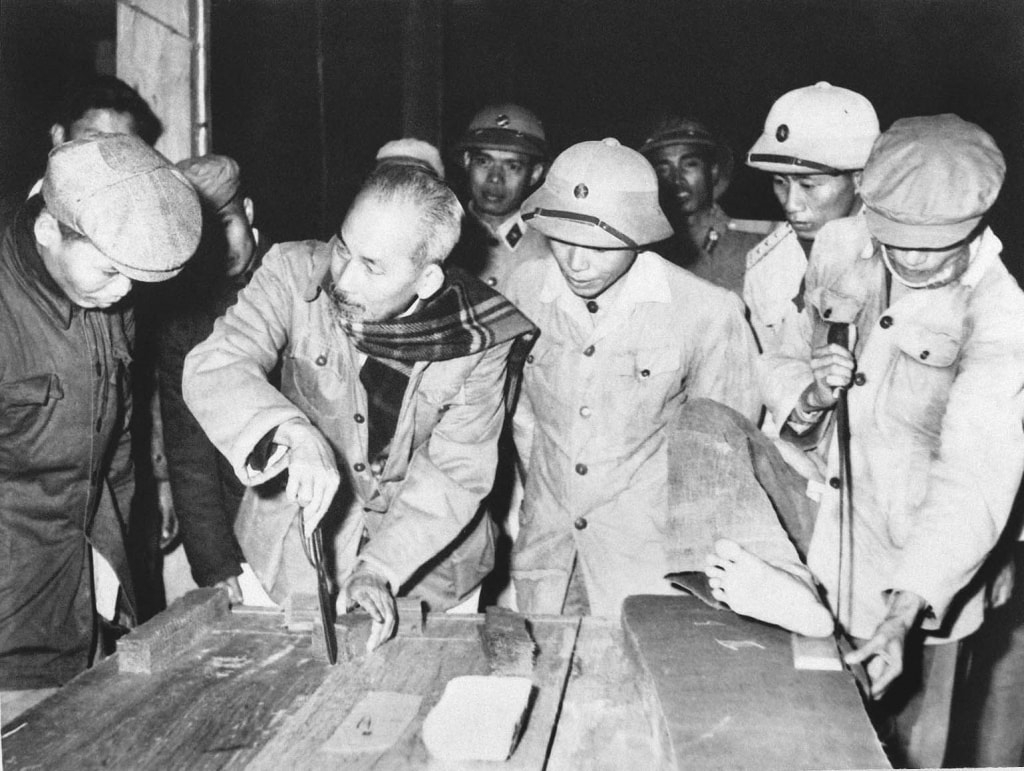
After more than 40 years of innovation, our country has achieved great and historic achievements:"Our country has never had the foundation, potential, position and international prestige as it does today."(2)However, a number of cadres, party members, agencies, units and people still suffer from waste.
A common phenomenon in many agencies and units is the waste of labor, when the apparatus is cumbersome, with many staff, without streamlining as directed by the Central and the Government. As a result, a number of civil servants are assigned work that is not appropriate to their job positions, leading to the situation of "going to work with an umbrella in the morning and returning with an umbrella in the afternoon" still lasting.
The problem of wasting time in administrative and public service agencies in many places is slowly being resolved; there are still many unnecessary meetings and conferences; the content of meetings often lasts a long time, but the conclusions are unclear, etc., so the effectiveness is not high.
Some heads of agencies and units have taken advantage of the Party's policy of rotating cadres to rotate them widely in all sectors and industries, such as civil servants, public employees, education, etc. (except for special agencies and units); thereby making the team of cadres, civil servants, and public employees feel insecure about their work, not dedicated to their work, and lacking in professionalism and expertise.
Therefore, it has led to the problem that whoever "runs" for leadership well will have stable work and will not have to be transferred, while whoever "runs" for leadership poorly will have to be transferred; thus, it not only wastes labor, reduces work efficiency, but also reduces the trust of cadres in the Party organization and the government.
Although the implementation of administrative procedures at state management agencies has made much progress compared to before, it still does not meet the expectations of the people and businesses. Some projects, due to incorrect investment policies or untimely investment, have caused waste of money, such as factories being built but not being able to operate because of insufficient input materials and no output market; markets being built but people not going to the market; projects taking over large areas of land but not being implemented for decades; the organization of construction of some items is not synchronous and scientific, such as newly inaugurated traffic roads, but digging to install electricity lines and water pipes; some projects have increased capital due to prolonged construction,... both wasting supplies and materials and destroying the landscape and environment, poor quality of construction, causing waste for the State.
In particular, there are some leaders and managers who, when newly promoted or appointed, are very interested in directing the rebuilding of a new headquarters gate (although the old gate was built by the previous leader) to suit their age, not to mention the very costly purchase of vehicles and installation of new equipment in the office; taking advantage of the tourism development policy, some localities have organized many festivals or held groundbreaking and inauguration ceremonies for a number of projects and items, which are very costly and wasteful, etc. The above examples and statistics on wastefulness are contrary to Ho Chi Minh's ideology, contrary to the Party's guidelines and policies, and the State's policies, and need to be prevented and pushed back promptly.
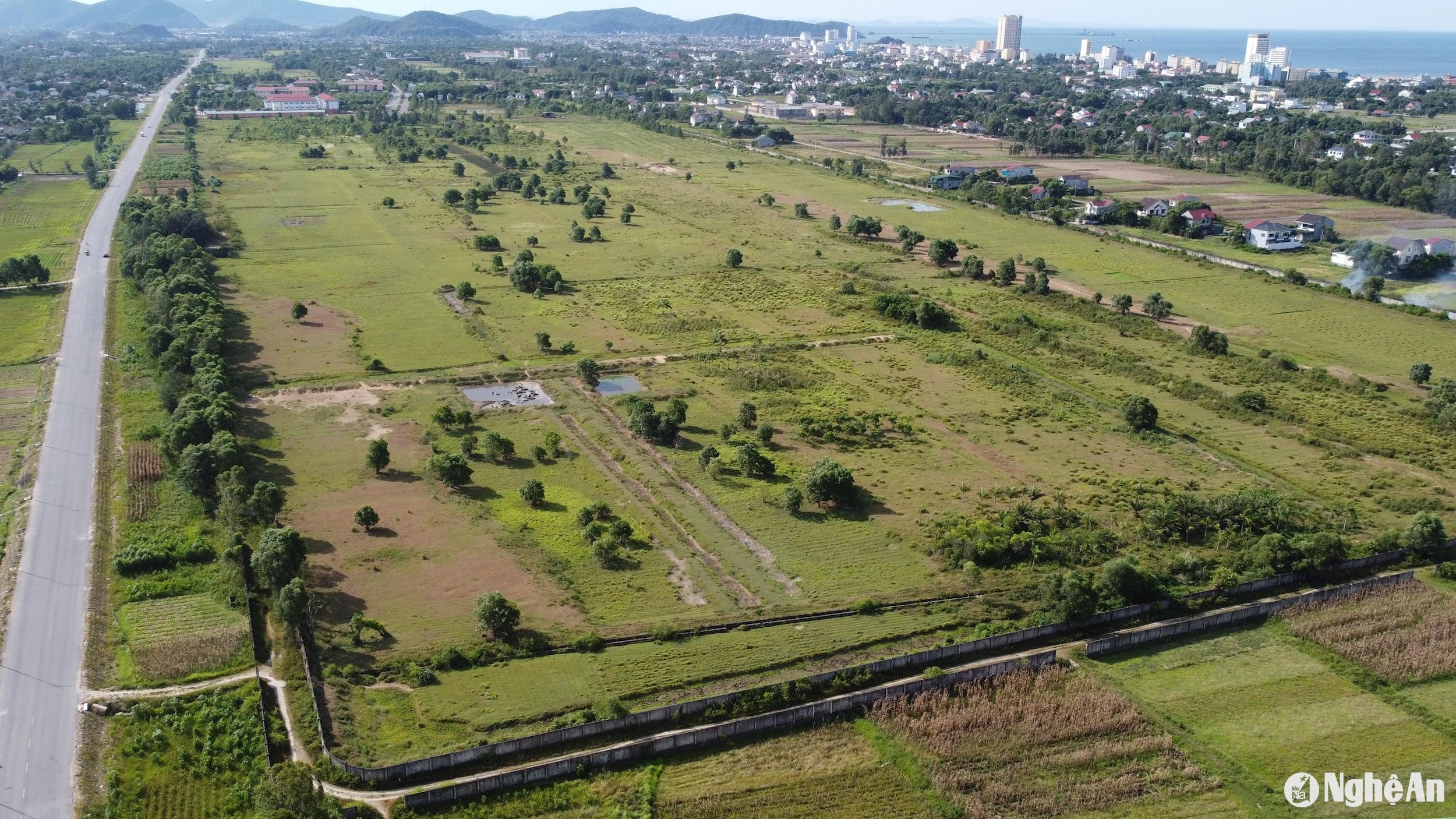
The underlying cause of waste was clearly pointed out by President Ho Chi Minh, which is individualism - an obstacle that lies within each cadre, party member and each person, and is the fundamental cause of many shortcomings, mistakes and other obstacles.
According to Him: “Individualism is a dangerous enemy that each of us must always be vigilant and determined to destroy.” The manifestation of individualists is that “They do not care about the lives of the people but only think about their own interests. They forget that every coin and grain of rice is the sweat and tears of the people, thus giving rise to ostentation and waste. They consider themselves entitled to a life of luxury and pleasure, from which they lead to embezzlement, debauchery, and even sin. All the above mistakes are the offspring ofindividualism"(3).
Applying Ho Chi Minh's thought to the fight against waste and practicing thrift in Vietnam today
Firstly, efforts to create positive changes in awareness for cadres, party members and people.
The Resolution of the 13th Party Congress clearly stated: "Focus on building the Party in terms of ethics, actively fighting against bureaucracy, corruption, waste, and negativity; effectively preventing and repelling the degradation of political ideology, ethics, lifestyle, and manifestations of "self-evolution" and "self-transformation" within the Party, associated with promoting the study and following of Ho Chi Minh's ideology, ethics, and lifestyle; promoting the exemplary responsibility of cadres and Party members according to the mottoThe higher the position, the more exemplary one must be."(4)Accordingly, cadres and party members must first of all be truly exemplary in fighting waste and practicing thrift in both work and daily life.
The Resolution especially emphasizes the task of "Promoting revolutionary ethics education, regularly, extensively and effectively implementing the study and following of Ho Chi Minh's ideology, ethics and lifestyle in conjunction with the implementation of political tasks.
Strictly implement the Party's regulations on exemplary responsibility, the higher the position, the more exemplary one must be, first of all, Politburo members, Secretariat members, Central Executive Committee members,...(5). Party committees directly under the Central Committee to grassroots party organizations seriously implement the contents of the National Online Conference on studying, learning, grasping and propagating the Resolution of the 13th National Party Congress, in order to help cadres and party members grasp the core content and new points in the documents of the 13th National Party Congress.
On that basis, Party committees at all levels lead and direct the development of specific action programs to organize the implementation of the Resolution of the 13th National Party Congress; at the same time, widely propagate throughout the Party, the army and the people, creating unity of will and action in the process of implementing the resolution.
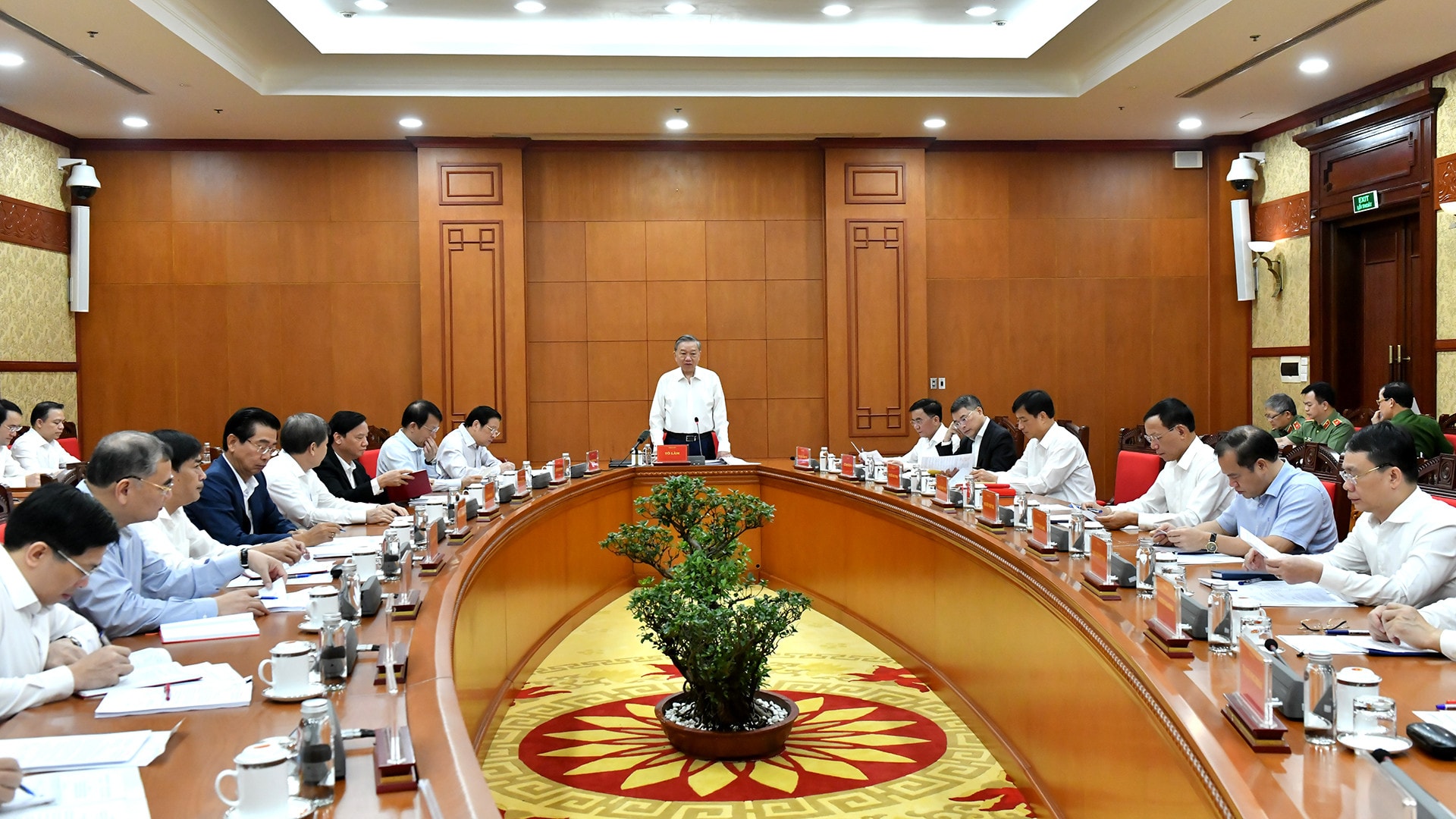
The organization of studying, grasping and propagating the Resolution of the 13th National Congress and new documents of the Party must fully implement the steps, such as determining the requirements, form, time, building the program, content and team of reporters to suit the reality, according to the guidance of the Central Propaganda Department. That is the way to strengthen political and ideological education for cadres, party members and people according to Ho Chi Minh's thought.
According to him, any sector or locality must conduct ideological education for cadres, party members, and people about the harmful effects of corruption and waste, "must clear up the ideology". President Ho Chi Minh requested that, first of all, we must create a common awareness and determination to fight corruption, waste, and bureaucracy; this is a very important and urgent task, like fighting the enemy on the front line.
Like other fronts, the ideological and political front must have serious preparation, unified leadership, and determination and steadfastness in implementation. This is an internal revolution - a fierce struggle between "good and bad", between "old and new", between revolutionary ethics of diligence, thrift, integrity, impartiality and the enemy of corruption, waste, bureaucracy...
Through propaganda, it is necessary to thoroughly understand the content of waste, its harms and the causes of waste, so that each cadre, party member and citizen can change their awareness; thereby, they can voluntarily act, be determined to fight waste and practice thrift effectively.
Second, continue to innovate and perfect the organizational structure and staff of the political system to be streamlined and operate effectively and efficiently.
The document of the 13th National Party Congress clearly oriented: "Continue to innovate and perfect the Party's organizational apparatus and the streamlined political system, operate effectively, efficiently, and synchronously with economic, cultural, social, and human innovation..., meeting the requirements of improving the Party's leadership and governing capacity, perfecting the socialist rule-of-law state, the socialist-oriented market economy, and socialist democracy". The urgent requirement is to "Promote streamlining of the payroll associated with restructuring the team of cadres, civil servants, and public employees according to job positions".(6).
On the basis of implementing resolutions(7), especially the implementation of the Resolution of the 13th National Party Congress, and the need to look back to evaluate and summarize to draw lessons in effectively implementing these important contents.
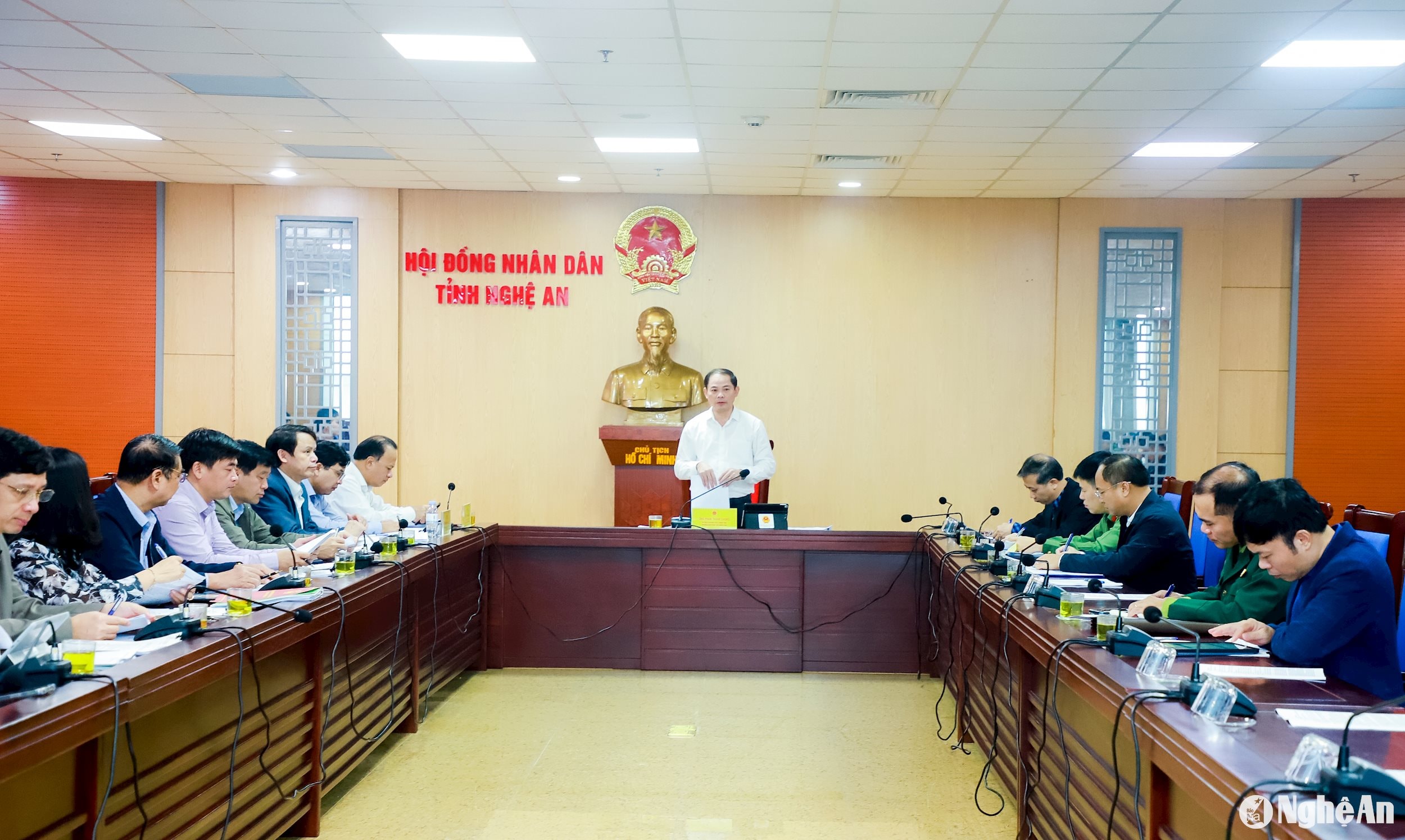
Reality shows that initially the political system has been streamlined and the number of civil servants and public employees in some sectors and fields has decreased, but the apparatus is still cumbersome, and in some places the number of employees has increased.
In the context of the scientific and technological revolution, the Fourth Industrial Revolution, especially the strong development of digital technology, creating breakthroughs in many fields; along with raising people's awareness, all policies, guidelines and legal documents directly related to the people need to be implemented synchronously and effectively.
It is necessary to conduct early research to drastically reduce some organizations at the intermediate level (such as the general department level, etc.) and continue to build a streamlined political system that operates effectively and efficiently. Strongly streamlining the payroll and making good use of talented people is an important solution, contributing to the practice of thrift and the fight against waste to achieve results.
Third, supplement and perfect the mechanisms, policies, laws, and responsibilities of organizations and individuals, especially leaders, in the fight against waste and practicing thrift.
Organize the implementation of two key tasks during the 13th Party Congress term: "Completing the synchronous legal system, mechanisms and policies to strongly promote socialist democracy and people's mastery;...", and "Strictly managing and rationally and effectively using land and resources; protecting and improving the environment; proactively and actively implementing solutions to adapt to climate change and severe natural disasters"(8); in which, the role, functions, tasks and powers of the Government are very large: "The Government is the highest state administrative agency, exercising executive power, is the executive body of the National Assembly, focusing on macro management, building institutions, strategies, planning and plans; strengthening the capacity to forecast, analyze and propose policies based on scientific and practical arguments in the conditions of a socialist-oriented market economy(9).
Accordingly, the Government and authorities at all levels are responsible for directing, operating and managing against waste and practicing thrift in all areas of social life, such as planning, planning, resource management, especially land, water resources, programs, projects, basic construction, public asset procurement; managing organization, apparatus, payroll, human resources; managing culture, education, health, etc.
Reality over the past years shows that waste still occurs in the fields of land and mineral management, investment project implementation, etc. Although the National Assembly issued the Law on Practicing Thrift and Combating Wastefulness on November 26, 2013, propaganda and implementation are still limited and ineffective.
Therefore, when issuing a new policy, competent authorities need to carefully consider and develop strict and appropriate provisions to limit the negative effects from the implementation of that specific policy.
In the coming time, the State needs to continue reviewing the issued laws. If any legal documents are overlapping, have unreasonable content, or have loopholes in practicing thrift and fighting waste, they need to be supplemented and amended promptly.
The Party and the State have issued many documents on personnel work, but it is necessary to supplement and clearly define the regime and responsibilities of leaders at all levels and sectors in the fight against waste and practice thrift; because promoting the role and responsibility of leaders is very necessary today, especially in personnel work, deciding on important economic and social projects and plans. If the right leader is chosen, who is both virtuous and talented, the work of leading and directing the practice of thrift and combating waste will achieve high results, contributing to consolidating and strengthening people's trust in the Party and the State.
-4ce02124fd300ed8fb6346f3e1cd02d1.jpg)
Fourth, promote people's mastery, the responsibility of the Vietnam Fatherland Front and socio-political organizations in actively fighting waste and practicing thrift.
According to President Ho Chi Minh, only by practicing widespread democracy and relying on the masses can tasks be successfully carried out. He said: "The movement against corruption, waste, and bureaucracy"We must rely on the masses to succeed"(10).
He also advised that we must persevere and be determined to fight these diseases to the end, and that we must work from top to bottom, with unity and solidarity, then we will definitely succeed. Promoting the people's right to mastery is one of the important contents in the Resolution of the 13th National Party Congress.
One of the five valuable lessons that our Party has learned is: "In all work of the Party and State, we must always thoroughly grasp the viewpoint of"people are the root";truly believe in, respect and promote the people's right to mastery, persistently implement the motto"people know, people discuss, people do, people check, people supervise, people benefit"The people are the center and subject of the cause of innovation, construction and protection of the Fatherland; all policies and strategies must truly originate from the lives, aspirations, rights and legitimate interests of the people, taking the happiness and prosperity of the people as the goal to strive for"(11).
Thus, in order for the fight against waste and the practice of thrift to become a voluntary action of cadres, party members and the masses, it is necessary to raise awareness and concern of each citizen for violations of the law, especially when many wasteful violations are discovered by the people and reported to the authorities.
Our State has issued many legal documents in the field of fighting corruption, negativity, etc., but it is necessary to review and build mechanisms to encourage and protect people to participate in monitoring, detecting, fighting waste, and practicing thrift.
The Vietnam Fatherland Front and socio-political organizations have the function and task of social supervision and criticism; Party committees at all levels need to create conditions for these organizations to effectively carry out their tasks of fighting waste and practicing thrift.
In particular, the people and the press have an important role in discovering and reflecting typical cases and events, publishing critical opinions from the masses, helping everyone clearly see that corruption, waste, and bureaucracy are crimes; and any individuals and agencies that are criticized by the people and the press must honestly self-criticize before the people in the press.
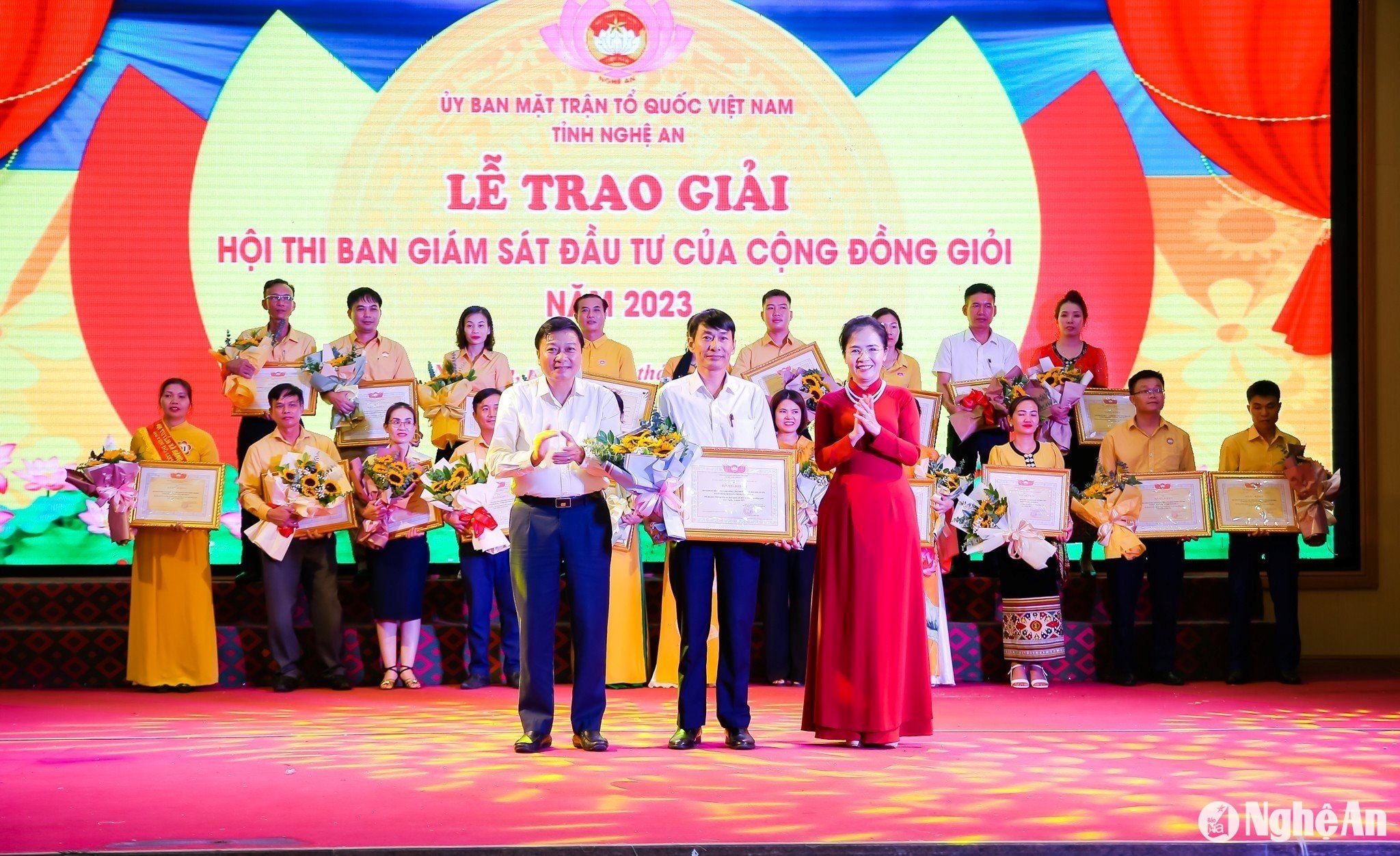
Imbued with Ho Chi Minh's thought, the Resolution of the 13th National Party Congress sets out 12 orientations for national development in the 2021-2030 period, including the important orientation: "Practice and widely promote socialist democracy, mastery and the role of the people; promote the strength of great national unity"(12). Over the past years, our Party and State have always paid attention to and created conditions to promote the position and role of press and media agencies on the ideological front, in order to propagate the Party's guidelines and policies, the State's policies and laws, reflect good people and good deeds, etc.; at the same time, actively contribute to orienting public opinion, fighting and refuting the distorted and provocative arguments of hostile forces.
Party committees, party organizations, and authorities at all levels need to do a good job of meeting people and voters, gathering all legitimate aspirations, complaints, denunciations, and recommendations from the people to resolve and handle them promptly and in accordance with the law, especially those reflecting and recommendations on fighting waste and practicing thrift. Leaders at all levels must strictly implement the Central Government's regulations on dialogue with citizens.
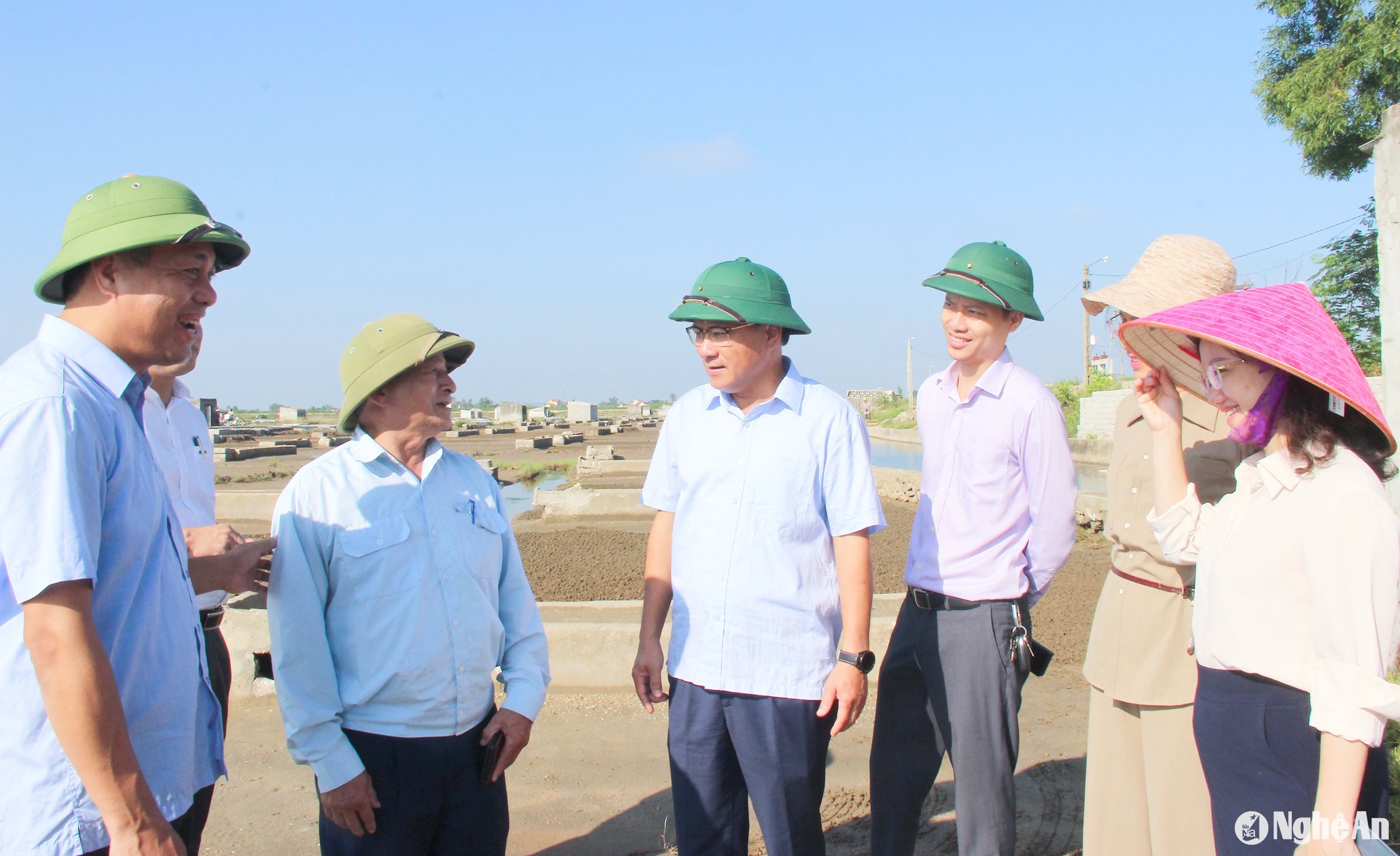
Fifth, strengthen inspection and examination, resolutely and strictly handle those who are wasteful and do not practice thrift.
During his career of leading the country, President Ho Chi Minh not only cared about educating revolutionary ethics for cadres and party members, but also cared about building and implementing laws, especially strictly handling corrupt and negative behaviors.
As soon as the Vietnamese State was born, he pointed out: "Doing national work now means sacrifice, striving, forgetting personal interests and thinking of the common good. Those who want to be revolutionary officials should definitely not be elected."(13).
At the end of 1945, he signed a decree imposing punishments on those who give and receive bribes from 2 years to 20 years of hard labor and must pay a fine double the amount of the bribe. On January 26, 1946, he signed a decree imposing the death penalty on embezzlement and theft of public property. During the resistance war against French colonialism, there was an officer who, while serving as the Director of the Quartermaster Department, took advantage of his position and, together with a number of accomplices, reduced the regime of the army to live a lavish and wasteful life. The case was prosecuted and that officer was sentenced to death. Because according to him, to govern one person is to save many; thereby showing that President Ho Chi Minh always upheld discipline and the law of the country.
The fight against waste and the practice of thrift are becoming more and more complicated and arduous, no less than the fight against corruption and bureaucracy... Waste of labor, time, talent, resources, money of the State, agencies and each cadre, party member, civil servant, public employee, and citizen still occurs every day, every hour and at an increasingly severe level; therefore, the Party and the State need to strengthen leadership and direction of functional agencies and the entire political system to regularly inspect, supervise, promptly detect, remedy and handle violators. Agencies such as inspection, examination, auditing, the Vietnam Fatherland Front and socio-political organizations actively fight to contribute to limiting waste and practicing the thrift policy of the Party and the State.
Applying the thoughts of President Ho Chi Minh, the Documents of the 13th National Party Congress set out the orientation for the country's development in the period of 2021 - 2030: "Strengthening publicity, transparency, accountability, and control of power associated with tightening discipline in the activities of the State and of cadres, civil servants, and public employees. Continuing to promote the fight against corruption, waste, bureaucracy, crime, and social evils"(14). Organizing the implementation of the Party's resolutions and effectively putting them into practice under the direction of the Politburo and the General Secretary is a practical action to realize the wishes of the great President Ho Chi Minh and the aspirations of the entire Vietnamese people.
(1)- Ho Chi Minh: Complete Works, National Political Publishing House Truth, Hanoi, 2011, vol. 7, p. 357
(2)- Documents of the 13th National Congress of Delegates, National Political Publishing House Truth, Hanoi, 2021, vol. 1, p. 25
(3)- Ho Chi Minh: Complete works, op. cit., vol. 14, p. 469.
(4)- Documents of the 13th National Congress of Delegates, op. cit., vol. 1, p. 41.
(5)- Documents of the 13th National Congress of Delegates, op. cit., vol. 1, pp. 183 - 184
(6)- Documents of the 13th National Congress of Delegates, op. cit., vol. 1, p. 185
(7)- See: Resolution No. 18-NQ/TW, dated October 25, 2017, of the 6th Conference of the 12th Party Central Committee, on "Some issues on continuing to innovate and reorganize the apparatus of the political system to be streamlined and operate effectively and efficiently"; Resolution No. 26-NQ/TW, dated May 19, 2018, of the 7th Conference of the 12th Party Central Committee, on "Focusing on building a contingent of cadres at all levels, especially at the strategic level, with sufficient qualities, capacity and prestige, equal to the tasks".
(8)- Documents of the 13th National Congress of Delegates, op. cit., vol. 2, pp. 336 - 337
(9)- Documents of the 13th National Congress of Delegates, op. cit., vol. 1, pp. 176 - 177
(10)- Ho Chi Minh: Complete Works, op. cit., vol. 7, p. 362
(11)- Documents of the 13th National Congress of Delegates, op. cit., vol. 1, pp. 27 - 28
(12)- Documents of the 13th National Congress of Delegates, op. cit., vol. 2, p. 332
(13)- Ho Chi Minh: Complete Works, op. cit., vol. 4, p. 168
(14)- Documents of the 13th National Congress of Delegates, op. cit., vol. 2, p. 332

